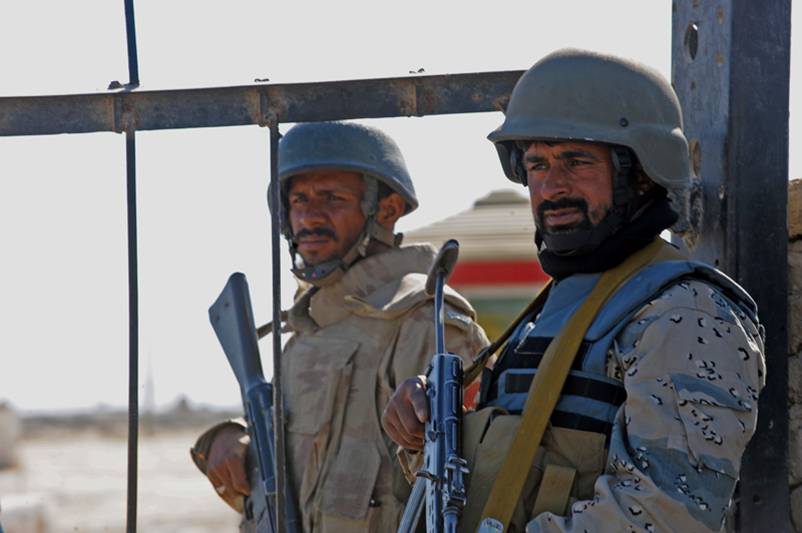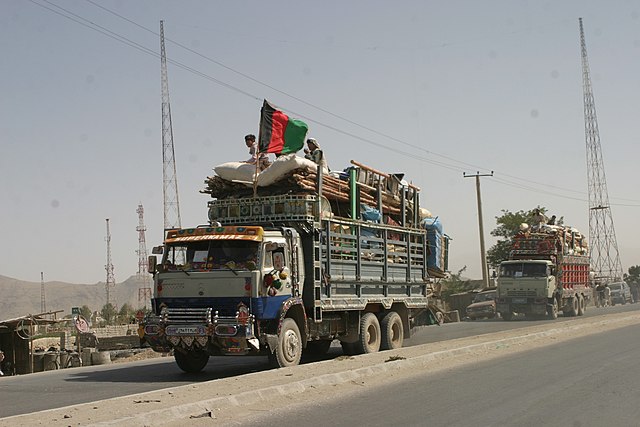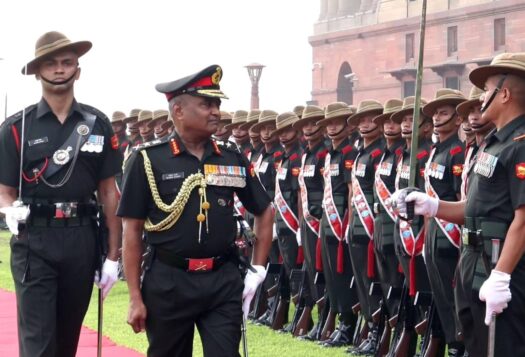
As Pakistan begins deporting 1.7 million undocumented Afghan refugees, Pak-Afghan relations stand at a historical low. Almost four decades ago, when Soviet forces invaded Afghanistan, four million Afghan refugees migrated to Pakistan to seek shelter. Following recent growing tensions between Kabul and Islamabad, Pakistan gave all undocumented Afghan migrants – many of which have been born and raised in Pakistan – until November 1 to leave the country.
The sudden rush for repatriation of Afghan refugees has raised suspicions. Interim Afghan government spokesperson Suhail Shaheen has described the eviction of Afghan refugees as “pressure tactics against Taliban.” Others argue that Pakistan is pushing for the repatriation of Afghan refugees to pressure the Taliban government to act against the Tehreek-i-Taliban Pakistan (TTP). On the other hand, Pakistan’s caretaker Prime Minister Anwar-ul-Haq Kakar stated that Afghan refugees without legal status have been contributing to the rise in terrorist activities in Pakistan since the Taliban returned to power two years ago.
For decades, Pakistan has sought to acquire greater strategic depth and secure Afghanistan as a place to regroup in the case of a military attack by India. This policy has led Pakistan to meddle in Afghanistan’s domestic politics…further worsening the relationship.
The repatriation push is evidence that Pakistan has not yet learned from its past mistakes in Afghanistan. During the colonial rule of the subcontinent, the British viewed Afghanistan as a buffer to the Russian threat. Pakistan continued this colonial legacy by trying to use Afghanistan to gain a strategic advantage over India with a military policy known as “the strategic depth policy,” which refers to Pakistan’s use of Afghanistan as a ‘military asset’. For decades, Pakistan has sought to acquire greater strategic depth and secure Afghanistan as a place to regroup in the case of a military attack by India. This policy has led Pakistan to meddle in Afghanistan’s domestic politics, inciting deep-seated fears that Pakistan aims only to transform its neighbor into a client state, further worsening the relationship.
Pakistan and Afghanistan have significant cultural and religious ties. However, the bilateral relationship has been overshadowed by unnecessary blame games that benefit neither side. To improve bilateral relations, Pakistan should rethink its policy on repatriation of Afghan refugees, whereas Afghanistan needs to understand Pakistan’s TTP problem and help Pakistan in its fight against TTP.
Origins of Pakistan’s Missteps in Afghanistan
The Soviet invasion of Afghanistan in 1979 was a strategic opportunity for Pakistan to develop its policy of strategic depth in Afghanistan. With the help of the United States, Pakistan began to train and provide logistic support to Islamist groups that were fighting against the Soviet forces during the Cold War. After the withdrawal of Soviet forces, the Mujahideen failed to form a government and bring peace to Afghanistan. Factions from the Mujahideen became the Taliban, a group that Pakistan invested heavily in as a strategic asset – one that protects Pakistan’s interests in the region and eliminates Indian influence in Afghanistan. In response, India extended support to the Northern Alliance, a ruthless anti-Taliban force. During the President Ashraf Ghani era, India focused on projecting soft power by investing in people-to-people connections in Afghanistan. Since their return, the Taliban has also shown interest in building friendly relations with India.
The Taliban emerged as a strong opposition against the Mujahideen and eventually established their regime in 1996. Pakistan was one of the only three countries at the time that recognized the Taliban regime. However, their government only lasted until 2001, when it was overthrown by the United States. Although Pakistan joined the U.S.-led Global War on Terror, it continued providing support to the Taliban and as such, were blamed for playing a double game. When the Taliban took over the country in August 2021 as the U.S. forces withdrew, Pakistan’s former Prime Minister Imran Khan stated that Afghanistan had broken the shackles of slavery. Pakistan’s celebrations were soon halted when the Taliban began to show hesitation in acting against the TTP.

Strategic Depth or Strategic Predicament?
Pakistan’s decades-long investment in the Taliban has borne bitter fruit, and has led to resentment within the higher ranks of the Taliban. Since the Taliban reclaimed power in Afghanistan, terrorist attacks in Pakistan – in which 2,267 Pakistanis have died – have increased by 60 percent. Pakistan’s caretaker Prime Minister has blamed the Taliban for supporting the TTP, while the Taliban have called Pakistan’s growing concerns about the TTP Pakistan’s internal problem. Pakistan has hinted at the possibility of conducting targeted strikes inside Afghanistan against TTP fighters, and the head of the Pakistani army cautioned Kabul, warning of an “effective response” if it fails to act against TTP.
On the issue of Afghan refugees, the Interim Afghan Government Defense Minister Mullah Muhammad Yaqoob has warned Pakistan of severe consequences by saying, “as you sow, so shall you reap.” This statement from a Taliban high official is alarming, possibly hinting towards an increase in border clashes and terrorist activities. The TTP and Afghan Taliban have enjoyed strong relations, rightly explained by Rahimullah Yousafzai: “The TTP made many sacrifices to enable the Taliban to return to power. How can the Taliban abandon them now?” It is safe to assume that the Taliban may mobilize TTP fighters against Pakistan and punish it for the repatriation of Afghan refugees.
Pakistan’s obsession with strategic competition with India has consistently overshadowed its broader national interests. Its pursuit of strategic depth has contributed to cultivating deep-seated resentment amongst Afghans against Pakistan that has come to the forefront during the reign of the Taliban government.
The border dispute between the two countries is a longstanding issue that is worsening. In the last two years, military tensions along the Durand Line – the disputed border between the two countries – has persisted, causing frequent border closures. The Taliban has shown strong resentment against Pakistan’s fencing of the border by destroying and removing the fence infrastructure. Interim Afghan Government Spokesperson Suhail Shaheen has publicly denied the legitimacy of the Durand Line as the border between the two countries, calling it “merely a line.” Since returning to power, the Taliban have deliberately concentrated on the border issue to stir up nationalist sentiments, distance themselves from Pakistan, and seek public legitimacy on both religious and nationalist lines. Contrary to its objective of fostering strategic depth in Afghanistan, Pakistan appears to have inadvertently nurtured a strategic predicament right at its doorstep that only further complicates Pakistan’s tricky security situation.
Turning the Page in Afghanistan-Pakistan Relations
It is evident that Pakistan has gained little from having its erstwhile strategic asset at the helm in Afghanistan. Providing support to the Taliban has proven to be a strategic failure as it has escalated militancy within Pakistan. Moreover, it has failed to win the hearts and minds of the people in Afghanistan.
Pakistan’s obsession with strategic competition with India has consistently overshadowed its broader national interests. Its pursuit of strategic depth has contributed to cultivating deep-seated resentment amongst Afghans against Pakistan that has come to the forefront during the reign of the Taliban government. The anti-Pakistan sentiment was clearly visible in the recent Cricket World Cup and Asia Cup, in which Pakistan and Afghanistan fans were caught in physical and verbal fights.
In a delicate time like this, when Pak-Afghan relations are at their lowest point, the repatriation of Afghan refugees will only further escalate the tensions. Pakistan can improve its relations with the Afghan people by improving the ease of business and softening its policy towards Afghan migrants. Both countries should adopt a digital documentation system that enables ease of movement for business purposes. Trading zones along the border can be established that allow duty free trade among both countries. Pakistan also needs to adopt a uniform policy of repatriation in collaboration with the UNHCR and Kabul that ensure an indiscriminatory and humanitarian process. Meanwhile, Kabul must also realize that the TTP is a serious security threat for Pakistan. It is imperative for Pakistan and Afghanistan to engage in constructive dialogue, rather than indirectly meddling in each other’s domestic affairs.
Also Read: SAV Q&A with Noorulain Naseem – Pakistan’s Declaration Against Undocumented Migrants
***
Click here to read this article in Urdu.
Image 1: Afghan and Pakistani at the Friendship Gate in Spin Boldak, Flickr
Image 2: Afghan refugees return from Pakistan in 2004, Wikimedia Commons


